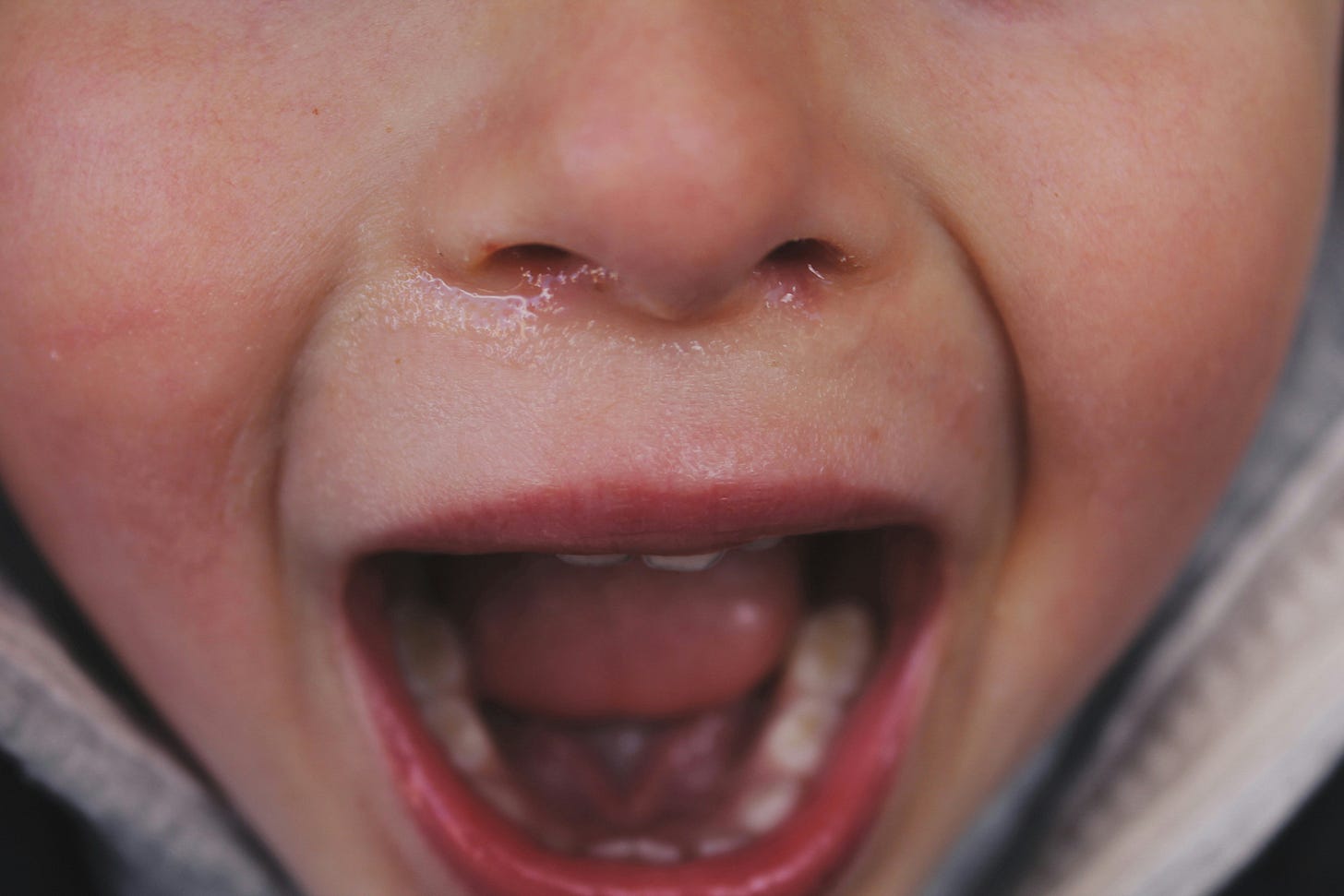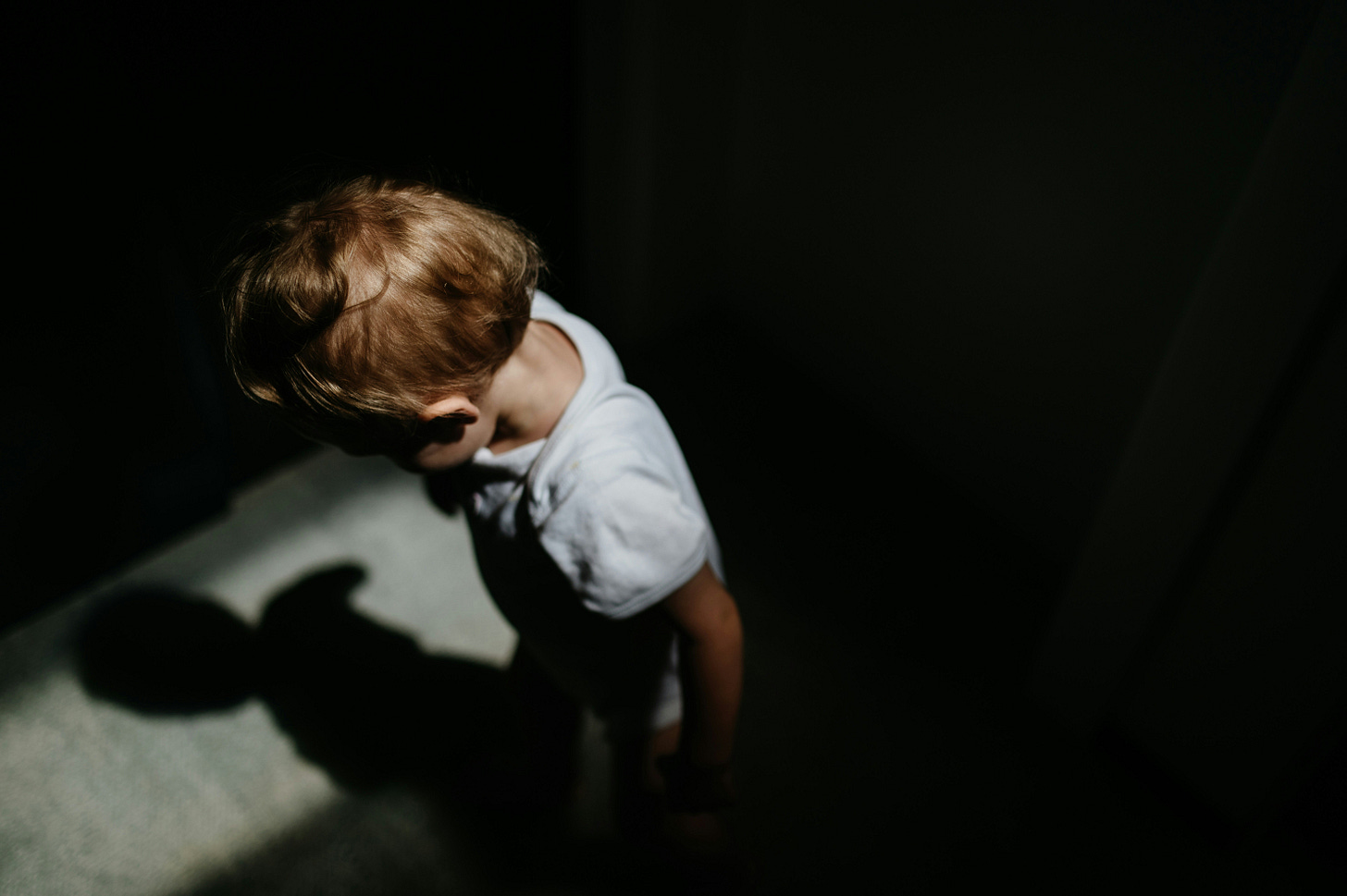Biting, Throwing, Burning and Whipping Children Is Still Legal in Many Parts of the U.S. Why?
Under corporal punishment laws, parents can legally hit their children at home across the U.S. How does this impact LGBTQ youth?

Growing up in an Orlando suburb, D remembers being stripped naked, bent over his parents' laps and spanked with a plastic spatula that had “tough love” written on it in black Sharpie. This punishment persisted through D’s childhood, at times making it uncomfortable for him to sit the next day.
“Spanking evolved into things like grounding and taking things away, taking meals away, replacing meals with bread and water, kneeling on rice in a corner facing the wall,” says D, who asked to remain anonymous because he is afraid of retaliation from his mother for speaking out.
Now 29 years old, D has permanent nerve damage and walks with a cane.
And while this abuse was emotionally and physically devastating, it was legal.
This is because corporal punishment is legal nationwide inside the home and in public schools in 17 states. According to the World Health Organization, corporal punishment includes hitting, smacking, slapping and spanking children with a hand or an object such as a whip, stick, belt, shoe or wooden spoon. But it can also involve kicking, shaking, throwing, scratching, pinching, biting, burning or scalding children, as well as pulling hair, forcing children to stay in uncomfortable positions or forced ingestion.
As a result, the line between legally sanctioned physical punishments and child abuse is not always clear. This confusion can make it easy for parents to punish their children in ways that are abusive, but not illegal.
Corporal punishment is illegal in 68 countries, with Thailand being the most recent to ban it. And since 1989, the United Nations Committee on the Rights of the Child has advocated for the end of the practice.
But on American soil, it is estimated that over 160,000 children are subjected to these punishments at school every year, according to 2012 data. In Mississippi, Collins Elementary School has become infamous for its widespread use of paddling students as early as kindergarten. In Florida, an 18-year-old was hit with a wooden paddle so severely she was left with bruises and welts. And in 2022, a case involving a Virginia mother who disciplined her children with a belt was overturned in the name of “parental privilege.”
“Longstanding perspectives in law in the U.S. … essentially identify children as the property of their parents,” says Elizabeth Saewyc, a professor at the University of British Columbia whose research focuses on vulnerable youth. “That gives people a lot of impunity about what they can and cannot do.”
Saewyc says that corporal punishment laws continue to exist because America’s legal system hasn’t caught up with the massive body of research that illustrates the harm these punishments can do to children. She notes that there have never been corporal punishment bans, as society originally saw spanking and paddling as good punishment. New Jersey became the first state to ban corporal punishment in schools by statute in 1867, but many other states did not enact a ban until the late 1980s or early 1990s
“[Back then], we didn't have the same level of understanding and knowledge about what physical punishment does in terms of the health and well-being of young people,” Saewyc told Uncloseted Media. “Violence against young people at peak times when they're growing and developing has a big impact on their brains … that can have long-term impacts. People who have experienced abuse in childhood are more likely to experience heart disease and strokes,” she says.
These laws may disproportionately affect queer youth, as multiple studies suggest LGBTQ kids experience violence and emotional abuse from parents at a higher rate than their counterparts. “[Many parents] have this perspective that they don't want their child to be LGBTQ, and that somehow this violence will help prevent them from becoming gay or trans,” Saewyc says.
LGBTQ Kids Are at Greater Risk
D, who is gay and trans, says the physical punishments he received were often coupled with discipline rooted in social shame. For something as minor as eating a snack between meals without permission, D remembers his father forcing him to wear a baseball cap with the word “liar” written on it. “He would have me wear the hat, and I would have to wear it to church and other social activities for around a week. And then if someone asked me about the hat, I would have to tell them what I did to earn it.”
“We know that gender non-conformity in children is associated with an increased experience of violence from parents,” Sloan Okrey Anderson, assistant professor of social work at St. Catherine University, told Uncloseted Media.
Okrey Anderson says that parents targeting their queer children with more severe discipline is often the product of subconscious bias. “There have been studies that look at brain scans to see how parents react to their kids differently, and even parents who say they're supportive will still be more activated in negative ways around their queer kids,” they say. “Parents just tend to have more internalized negative beliefs about their queer kids.”
These negative beliefs are often compounded by conservative religious environments. Jesse, who grew up in an Evangelical community, was also subjected to corporal punishment for being queer. “I was in that generation where we were the first kids to be out as gay,” Jesse, a gay and nonbinary 37-year-old, told Uncloseted Media. “My community was very religious. It's a church on every street corner type of place.”
As a result of being gay, Jesse was bullied at their Indiana school—where corporal punishment is still legal—by peers and teachers. During their junior year of high school, Jesse was expelled, supposedly for missing too many classes.
“I asked the people who were in the room with me if me being gay had factored into their decision to kick me out,” they say. “Nobody said anything to me or could look me in the eye.”
While many queer kids who are bullied at school may find refuge at home, Jesse says they were also beaten by their father. “He hit me a lot, sometimes with a belt, sometimes just with his hands,” they say. “It felt very normal. It was just part of how my life was.”
Jesse says it reached a boiling point when they told their dad that they were gay. “That night that I came out to him, we had a physical altercation. … He beat me pretty severely. I had a black eye and a busted lip.”
While not all the violence Jesse experienced was legal, Cindy Miller-Perrin, a professor of psychology at Pepperdine University, says that spanking and other forms of corporal punishment create a slippery slope that often leads to illegal abuse. “Kids who are physically abused [are] also spanked at a very high rate,” she told Uncloseted Media. “It's not necessarily true that everyone who spanks their kid will end up physically abusing them, but it's a very significant risk factor.”
A 2019 study published in the Journal of Interpersonal Violence found that parents attending religious groups punish their children using corporal punishment more often than parents who are not participating in these groups. The study also found that 21% of parents seek advice from religious leaders, and those who do have higher odds of corporal punishment.
That may be in part because attitudes supporting corporal punishment can be seen in Christian literature like “To Train Up a Child,” a parenting book written by Evangelicals Michael and Debi Pearl. The book—which has sold hundreds of thousands of copies—encourages parents to spank and paddle their kids, withhold food from them and even hold them underwater until “panic set[s] in.” The ministry run by the Pearls has been connected to the death of two children, as the parents were following the family’s protocol.
“There are some faith communities who take interpretation of the Bible or other holy texts, or their cultural traditions going back centuries that include controlling children,” says Saewyc, adding that many conservative Christians use the Old Testament to justify physically punishing their children. Passages like Proverbs 13:24, which states, “Those who spare the rod hate their children, but those who love them are diligent to discipline them,” are often interpreted by parents to mean that they are doing their children a disservice if they do not physically punish them.
D says his parents are “fanatically religious” and that it “was absolutely an alternate reality” in his home. “The devil was real and present at all times,” he says, “and anything that seemed against God in us could be demonic possession, and you could punish that out of the person.”
D says this religious extremism was made more dangerous because his mother suffered from depression, bulimia and borderline personality disorder. Her illnesses “made for a checkerboard of good days and bad days,” he says.
What Can Be Done?
Miller-Perrin says a key component to dissuading parents from using corporal punishment as discipline is through education. “Parents tend to parent the way that they were parented, because that's what they know. And so parent education programs that teach alternative forms of discipline are really effective.”
Beyond this, changing the laws would be the ultimate goal. “[Physical punishment] is seen as normative. And if we made it illegal, that could go a long way because it would change attitudes,” she says.
And there is a push to do this. In 2023, former U.S. Secretary of Education Miguel Cardona wrote a letter to governors and school leaders, urging them to outlaw corporal punishment in schools. Meanwhile, organizations like End Corporal Punishment are working towards the universal prohibition and elimination of corporal punishment of children.
And in March, during the 58th session of the Human Rights Council, 40 countries made a first-ever joint statement addressing children’s fundamental right to protection from all corporal punishment.
Absent from that list was the United States, where tens of thousands of kids continue to be subjected to corporal punishment every year.
“[Corporal punishment] is very normative in the United States, so the general population doesn't really question it. I think it’s also related to the 14th Amendment—that parents believe they have the right to discipline their children as they see fit,” says Miller-Perrin. “So in some ways, there's a disparity between parental rights and children's rights.”
For Jesse and D, making sense of the way their parents treated them is confusing and exhausting. Jesse remembers picnics with their father where they would feed ducks together. To them, these memories are just as integral to their childhood as those involving violence. “It's hard because you want to love your parents, and you want your parents to love you,” they say. “And with abuse, usually there's a good amount of good times, just as much as there's bad times.”
D says he hopes to spread awareness by sharing his story. “I can’t fix all this stuff in my childhood,” he says. “But I can potentially prevent someone else's childhood from being awful.”
Despite the intense trauma Jesse and D have been through, both of them now have supportive partners and have gone through therapy. Neither of them are in contact with their parents.
If objective, nonpartisan, rigorous, LGBTQ-focused journalism is important to you, please consider making a tax-deductible donation through our fiscal sponsor, Resource Impact, by clicking this button:







